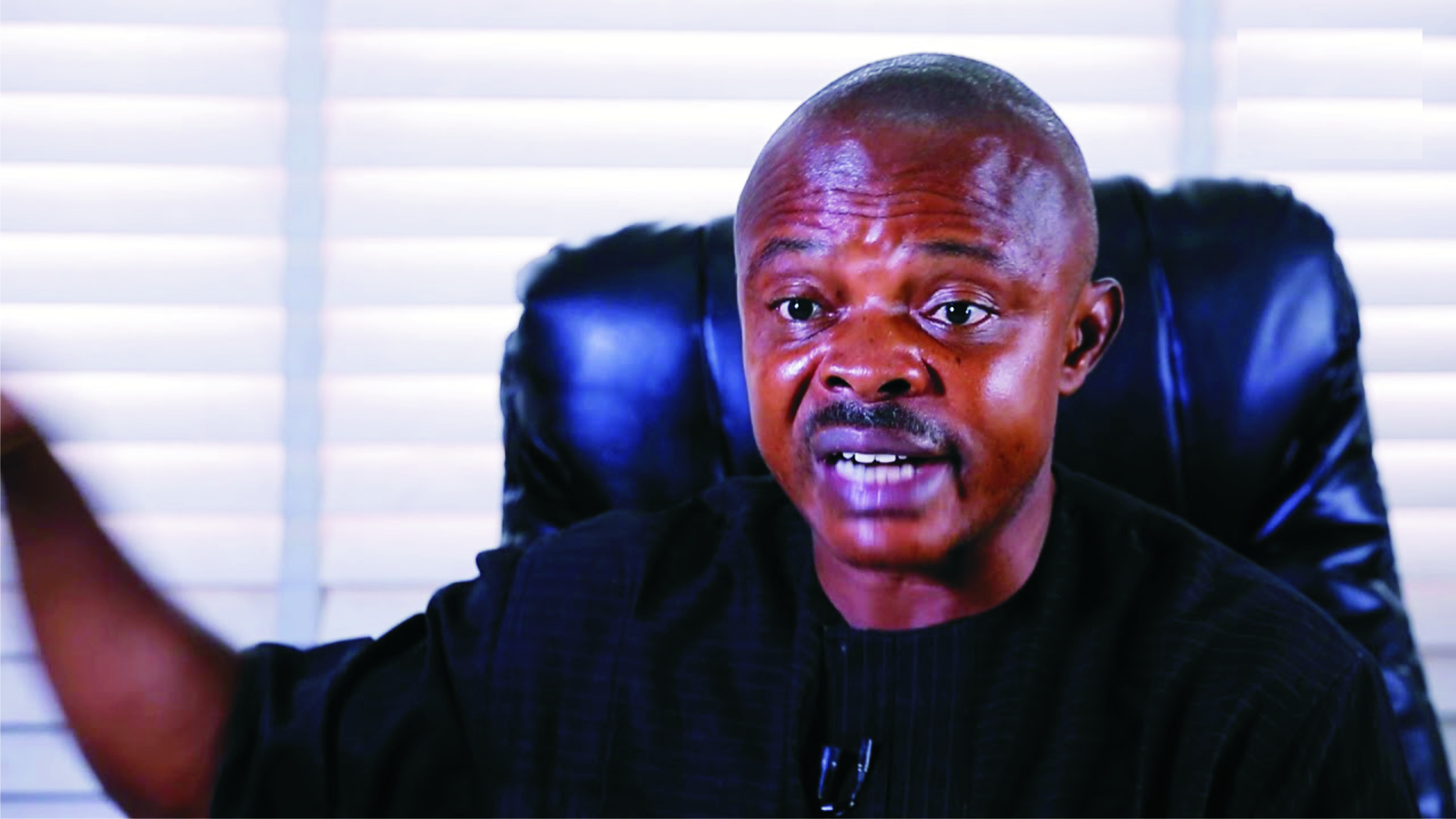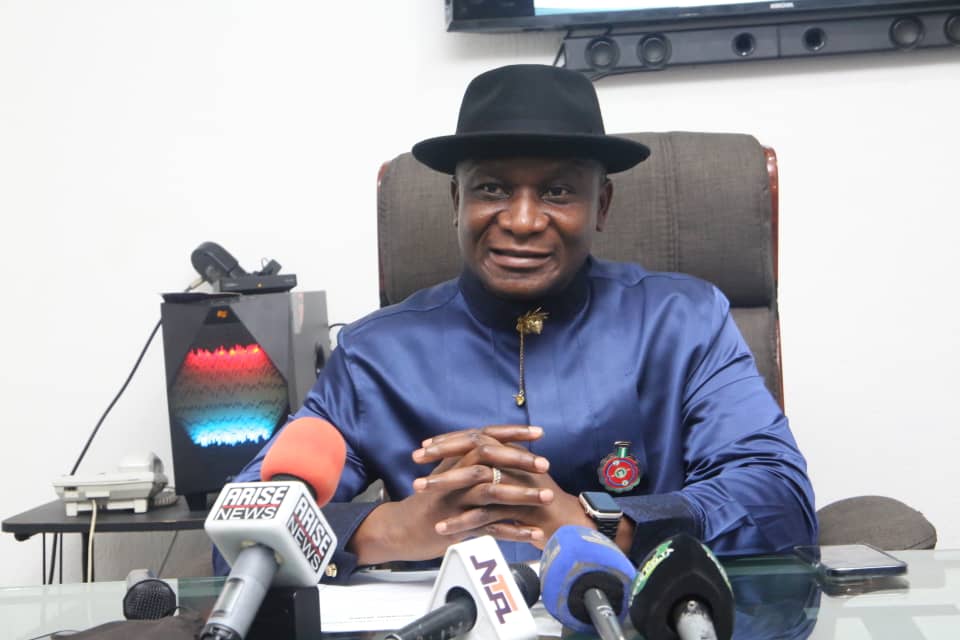News
Oxfam Slams IMF’s Austerity Measures For Nigeria
International charity organisation, Oxfam, has cautioned International Monetary Fund (IMF) against pushing developing countries into austerity measures.
It lamented that 87per cent of IMF COVID-19 loans require developing countries to adopt tough, new austerity measures, even as it accused the Fund of double standards.
In a statement, yesterday, in Abuja, Oxfam said: “New analysis finds that 13 out of the 15 IMF loan programmes negotiated during the second year of the pandemic require new austerity measures such as taxes on food and fuel or spending cuts that could put vital public services at risk. IMF is also encouraging six additional countries to adopt similar measures.
“Recently, IMF Chief, Kristalina Georgieva, urged Europe not to endanger its economic recovery with ‘the suffocating force of austerity’. Yet, over the past year, IMF has gone back to imposing austerity measures on lower-income countries.
“This epitomises IMF’s double standard: it is warning rich countries against austerity while forcing poorer ones into it. The pandemic is not over for most of the world. Rising energy bills and food prices are hurting poor countries most. They need help boosting access to basic services and social protection, not harsh conditions that kick people when they are down”.
Also, Country Director, Oxfam, Dr. Vincent Ahonsi, said: “Nigeria is a country of spectacular inequality and astounding level of poverty, which cannot afford the IMF’s austerity pill, as that could further worsen inequality and plunge more Nigerians deeper into poverty.”
He added: “IMF needs to stop selling its austerity ideas to Nigeria and facilitate an easier access to emergency financing for socio-economic infrastructure and human capacity development. The agency also needs to encourage the Nigeria government to lessen the burden on 99 per cent of the people who happen to be at the bottom of the pyramid, and tax the super-rich one per cent more appropriately through progressive tax regimen.”
This came as the United Nations disclosed that the coronavirus pandemic shock plunged 77million people into extreme poverty last year globally and, by the end of this year, many economies will have remained below pre-2019 levels.
In a report, Under Secretary-General, Liu Zhenmin, explained that the crippling cost of debt financing for many developing countries has restricted their recovery from the COVID-19 pandemic, forcing cutbacks in development, and their ability to respond to further shocks.
The report noted that rich countries were able to support their pandemic recovery with record sums borrowed at ultra-low interest rates, while the poorest spent billions servicing debt, preventing them from investing in sustainable development.
It estimated that one in five developing countries’ gross domestic product per capita would not return to 2019 levels by the end of 2023, even before absorbing impacts of the Ukraine war.
News
May Day: Labour Seeks Inclusiveness In Policy-making

The Organised Labour yesterday, called on the Federal Government to ensure inclusiveness in policy making and guide against erosion of rights, such as free speech and association.
The President, Nigeria Labour Congress (NLC), Mr Joe Ajaero made the call at the 2025 Workers’ Day celebration held at the Eagle’s Square, Abuja.
The Tide source reports Ajaero and the President, Trade Union Congress, Mr Festus Osifo delivered a joint statement on behalf of the organised labour at the event.
Ajaero described May Day as, not only a moment to honour workers’ sacrifices, but also a platform to demand justice and accountability from those in public office.
He frowned at the alleged suppression of protests, and the erosion of rights of workers by some agents
According to him, workers have a duty to resist economic injustice, insecurity, and policies that undermine their dignity.
Speaking on the theme of the day, the NLC President underscored the need for Nigerian workers to reclaim the civic space and resist policies that contribute to worsening economic conditions.
“Our theme this year – “Reclaiming the Civic Space in the midst of Economic Hardship – reflects the urgent need for citizens to protect democracy and push back against repression.
“The civic space, where Nigerians express their concerns and challenge injustices is shrinking.
“If we fail to reclaim this space, the foundation of our democracy risks collapse,” he said
Ajaero, therefore, urged workers to unite and resist division, fear, and despair.
He also urged them to mobilise and organise for change, declaring that the right to demand better conditions is non-negotiable.
“Without workers, there is no society; without labour, there is no development. We must take our place in the fight for economic justice and democratic governance.”
Speaking in the same veins, Osifo said workers are the backbone of the nation—the educators, healthcare providers, builders, farmers, and innovators who sustain its economy -.
He stressed the need for the labour to reclaim the civic space even in the midst of economic hardship.
News
2025 UTME: JAMB Disowns Site Requesting Payment From Candidates

The Joint Admissions and Matriculation Board (JAMB) has disassociated itself from a fraudulent site requesting payments from candidates who missed the ongoing 2025 Unified Tertiary Matriculation Examination (UTME).
The board said that the site, “Copyrightwriter Personal J Rescheduling Flw” and account number 8520641017 at Sterling Bank, associated with it, are scam.
The disclaimer is contained in a statement made available to newsmen in Abuja on Thursday by the Board’s Public Communication Advisor, Dr Fabian Benjamin.
Benjamin said the account is being exploited to defraud unsuspecting candidates who missed their UTME.
“We issue this urgent notice to inform the public about this nefarious scheme targeting candidates who were unable to participate in the UTME.
“Some unscrupulous individuals are deceitfully soliciting payments of N15,700 under the false pretence of offering rescheduling services for the examination.
“Let us be unequivocal: this, it is a blatant scam, and we are confident that the public will not fall prey to such cheap and regressive tactics.
” The individuals behind this scam have no affiliation with JAMB or any legitimate government agency.
“The account details provided in these communications are entirely fictitious and bear no connection to any official processes; they exist solely for the purpose of perpetrating fraud,” he said.
Benjamin called on Sterling bank to take immediate and decisive action against this criminal activity.
According to him, JAMB has reported the matter to the relevant security agencies and actively pursuing those responsible for this deceitful act.
He further said that “JAMB does not reschedule examinations for candidates who miss their scheduled tests due to reasons unrelated to the Board’s actions”.
He, however, said that the Board is conducting a thorough investigation for candidates whose biometrics failed during verification and were thus unable to sit for the examination.
He said those without discrepancies would be invited to retake the examination at no cost , stressing that “no cost is required”
“It is imperative to understand that JAMB does not charge any fees for examinations after a candidate has completed their registration.
“We strongly urge all candidates to remain vigilant and not to succumb to these fraudulent schemes.
“Protect yourselves and report any suspicious activity immediately,” he explained.
News
NDDC Seeks UN’s Support To Accelerate Niger Delta Development

The Niger Delta Development Commission (NDDC) has expressed its willingness to partner with the United Nations (UN) to accelerate the development of the Niger Delta region.
Dr Samual Ogbuku, Managing Director of the NDDC, made the appeal in a statement issued by the commission’s Director of Corporate Affairs, Mrs Seledi Thompson-Wakama, in Port Harcourt on yesterday.
According to the statement, Ogbuku sought the UN’s support during his visit to the UN Resident and Humanitarian Coordinator (UNRHC), Mr Mohammed Fall, at the UN regional office in Abuja.
He called on the global body to provide the NDDC with technical assistance and expert services to support the region’s development.
“We are eager to collaborate with the UN, recognising that the state governments in the region and the NDDC alone cannot achieve the level of regional development required,” he said.
Ogbuku identified key areas where support would be needed, including the provision of portable and affordable drinking water powered by high-tech solar energy sources.
He also highlighted the importance of reforesting the mangrove swamps, which have been severely damaged by decades of environmental degradation caused by oil exploration in the Niger Delta.
“Although the NDDC has made progress in providing solar-powered streetlights across the region, we still require UN support in delivering solar energy solutions for residential buildings.
“We also wish to explore the possibility of installing solar mini-grids in homes across communities, which would boost local commerce and trade,” he added.
The NDDC managing director further appealed for increased UN involvement in areas such as healthcare, education, youth training, gender development, and food security.
Ogunku stated that such interventions would significantly enhance the standard of living in the region.
In response, Fall affirmed the UN’s readiness to collaborate with the NDDC to fast track development in the Niger Delta.
He assured that the UN would support initiatives in food security, job creation, education, and renewable energy, among other areas.
“We aim to approach development in the Niger Delta holistically, rather than focusing solely on environmental pollution.
“This is merely an entry point; however, the UN’s development vision aligns with the Sustainable Development Goals (SDGs), which are designed to positively impact various aspects of people’s lives,” Fall stated.
He assured the NDDC of continued and fruitful engagements to drive the region’s development.

